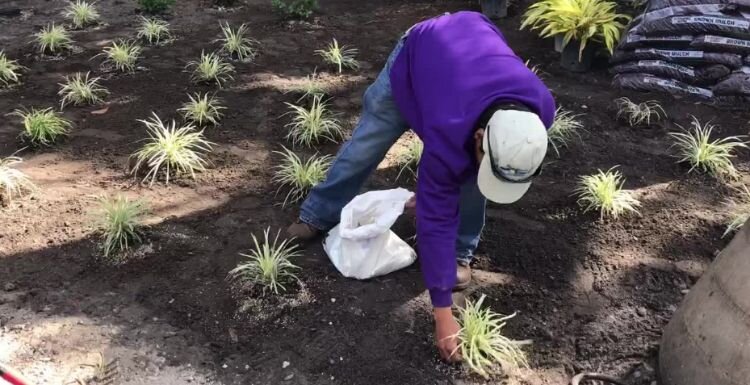Healthy soil is the foundation of a thriving garden or landscape. However, the presence of soil fungus can wreak havoc on your plants, leading to wilting, yellowing, and stunted growth. While chemical treatments are available, a growing number of gardeners are opting for natural solutions to address soil fungus issues.
In this comprehensive guide, we will explore effective, eco-friendly methods to treat soil fungus naturally, promoting a flourishing garden while minimizing harm to the environment.
What is Soil Fungus?
Before diving into the remedies, it’s essential to understand what soil fungus is and how it affects plants. Soil fungus is a group of microorganisms that play both beneficial and harmful roles in the soil ecosystem. While some fungi help decompose organic matter and aid nutrient absorption, others can cause plant diseases and inhibit healthy growth.
For healthy garden soil and the fertilizers that will allow the soil infected with fungus to regain its natural health, it’s mandatory to get rid of the fungus.
“Comprehensive for a thriving and disease-free environment.”
Types of Soil Fungus
Here you have major types of fungi.
1-Root Rot Fungi: These fungi attack plant roots, leading to reduced nutrient absorption and eventual wilting.
2-Powdery Mildew: A common fungal disease that forms a white powdery coating on leaves and stems, causing yellowing and distortion.
3-Fusarium Wilt: A serious disease affecting various plants, causing wilting and yellowing due to fungal colonization in the vascular tissues.
4-Rhizoctonia: A group of fungi responsible for damping off root rot and crown rot in many plant species.
Pathogen fungus is also a harmful fungus in garden soil, and it also causes diseases in humans.
Now let’s move towards natural ways to get rid of harmful fungi by using organic antifungal agents to feed on dead plants.
How To Treat Soil Fungus Naturally?
Here you have 10 amazing ways to treat soil fungus naturally.
1-Crop Rotation: Crop rotation is an effective and natural method to control soil fungus. By rotating the types of crops you plant, you can disrupt the lifecycle of pathogenic fungi, reducing their ability to survive and multiply.
2-Composting: Adding compost to your soil enhances its organic matter content, which fosters beneficial microbial activity. A well-balanced compost pile helps suppress harmful soil fungi, creating an environment that encourages plant growth.
3-Proper Drainage: Poorly drained soil creates a favorable environment for soil fungus. Ensure proper drainage by incorporating organic matter and avoiding overwatering.
4-Mulching: Applying organic mulch such as straw, wood chips, or leaves around your plants acts as a barrier against soil-borne fungi. It also helps maintain soil moisture levels, reducing the risk of fungal growth.
5-Neem Oil: Neem oil is a potent natural fungicide that disrupts the life cycle of soil fungus, preventing its spread and growth. Dilute neem oil with water and spray it on the affected areas.
6-Baking Soda Spray: A baking soda spray can be effective against powdery mildew. Mix one tablespoon of baking soda with one gallon of water and a few drops of liquid soap. Spray this solution on plants affected by powdery mildew.
7-Garlic and Onion Spray: Garlic and onion possess antifungal properties. Crush a few cloves of garlic and onion and soak them in water overnight. Strain the liquid and use it as a natural spray to protect plants from soil fungus.
8-Chamomile Tea: Chamomile tea has natural antifungal properties. Brew a strong chamomile tea, let it cool, and spray it on affected plants.
9-Copper Spray: Copper sulfate spray can effectively control soil-borne fungal diseases. However, use it sparingly, as excessive copper can be harmful to the soil and plants.
10-Vinegar Spray: A mixture of vinegar and water (1:1 ratio) can help combat certain soil fungi. Spray it directly on the affected areas using a spray bottle, but avoid dousing the soil.
How To Prevent Soil Fungus
While natural treatments can help manage soil fungus, prevention is always better than cure. Here are some preventive measures to keep soil fungus at bay:
1-Healthy Plant Selection: Choose disease-resistant plant varieties suitable for your region and climate. Isolate the plant that is susceptible to fungal disease.
2-Clean Gardening Practices: Maintain a clean garden by removing dead leaves, plant debris, and weeds regularly. This reduces the chances of fungal spores taking hold in your soil.
3-Quarantine New Plants: Before introducing new plants to your garden, isolate them for a few weeks to ensure they are free of any soil-borne diseases.
4-Avoid Overcrowding: Planting too closely can create a humid environment that favors the spread of soil fungus. Ensure adequate spacing between plants for proper air circulation.
5-Water at the Base: Avoid overhead watering, as wet foliage can promote fungal growth. Water at the base of plants early in the morning.
Conclusion
Tackling soil fungus naturally not only helps protect your plants and soil but also promotes a healthier and more sustainable garden. By employing these eco-friendly remedies and preventive measures, you can foster a flourishing garden while reducing the need for harmful chemicals.
Remember, a thriving garden starts with healthy soil, and natural treatments can be the key to achieving this balance. Embrace these methods, and let your garden bloom with life and vitality while you take pride in your environmentally conscious approach to gardening.

